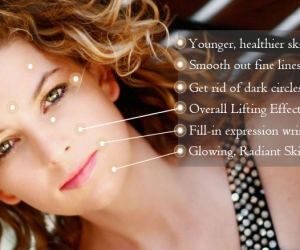Articles tagged with: anxiety disorders
St. John’s wort may cause increased sensitivity to sunlight. Other side effects can include anxiety, dry mouth, dizziness, gastrointestinal symptoms, fatigue, headache, or sexual dysfunction.
Research has shown that St. John’s wort interacts with many medications in ways that can interfere with their intended effects. Examples of medications that can be affected include:

The Linden Method – I’ve used it and it does work! I haven’t had a panic attack since I fininshed with it. Once I’ve finished my benzo withdrawal I’m positive that the linden method will get rid of my anxiety… And if anyone is guessing…. no, I don’t work for these guys, I’m not a salesman and I get nothing in return for anyone buying it!
Continue reading "The Linden Method Review. A True Anxiety Cure." >>

Childhood adversity may lead to unhealthy stress response in adult life A study has detected a correlation between childhood adversity and exaggerated inflammatory response to stress among seemingly healthy people. It may shed light on risk for depression, other illnesses later in life. PROVIDENCE, R.I. [Brown University] — Seemingly healthy adults, if they were abused […]
Continue reading "Childhood adversity may lead to unhealthy stress response in adult life" >>

General Anxiety Disorder is diagnosed when a person worries excessively about a variety of everyday problems for at least 6 months.13 People with GAD can’t seem to get rid of their concerns, even though they usually realize that their anxiety is more intense than the situation warrants. They can’t relax, startle easily, and have difficulty concentrating. Often they have trouble falling asleep or staying asleep. Physical symptoms that often accompany the anxiety include fatigue, headaches, muscle tension, muscle aches, difficulty swallowing, trembling, twitching, irritability, sweating, nausea, lightheadedness, having to go to the bathroom frequently, feeling out of breath, and hot flashes.

Anxiety Disorders affect about 40 million American adults age 18 years and older (about 18%) in a given year, causing them to be filled with fearfulness and uncertainty. Unlike the relatively mild, brief anxiety caused by a stressful event (such as speaking in public or a first date), anxiety disorders last at least 6 months and can get worse if they are not treated.
Anxiety disorders commonly occur along with other mental or physical illnesses, including alcohol or substance abuse, which may mask anxiety symptoms or make them worse. In some cases, these other illnesses need to be treated before a person will respond to treatment for the anxiety disorder.


















